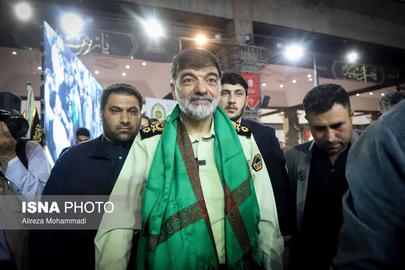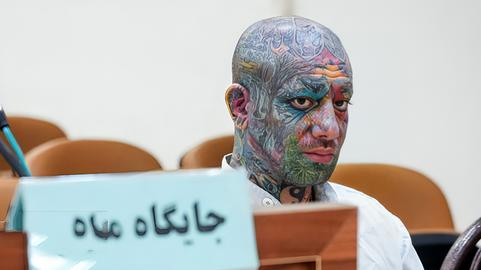The outspoken Sunni Friday prayer leader of the south-eastern Iranian city of Zahedan used his July 7 sermon to denounce the common practice by Iranian authorities of using physical coercion to extract confessions from prisoners.
"No one possesses the right to subject prisoners to torture and physical abuse,” said Molavi Abdulhamid, Iran’s most prominent Sunni cleric, ahead of weekly protests in which hundreds of protesters took to the streets of the restive city.
“Sharia law unequivocally condemns the act of obtaining confessions through coercion," Molavi said, adding, "No governing body has the authority to accept a forced confession as legitimate."
Iranian authorities have consistently used incommunicado detention, prolonged solitary confinement, torture and other ill-treatment in order to extract forced “confessions” from prisoners.
Molavi also called for members of the security and military forces to be held accountable for the killing and injuring of peaceful protesters and sexual assaults against women demonstrators.
Describing the laws and policies of the Islamic Republic as "problematic,” the 75-year-old cleric reiterated his call for fundamental reforms in the country.
🎥 معترضان در #زاهدان برای چهلمین جمعه پیاپی به خیابانها آمده علیه نیروهای نظامی و شبه نظامی سپاه و بسیج شعار دادند. ۱۶ تیر#شهروندخبرنگار #جمعه_های_اعتراضی pic.twitter.com/lSVAdoMtYl
— ایران وایر (@iranwire) July 7, 2023
"If the laws passed by parliament do not yield results, they should be amended. Laws are created by humans, and humans are prone to making mistakes," he said.
After Molavi’s sermon, Zahedan residents took to the streets for the 40th consecutive Friday to voice anger against the Islamic Republic, amid internet disruptions and heavy security presence.
The demonstrators chanted slogans such as "We swear by the blood of our comrades, we will stand until the end," and held placards calling for the release of popular rapper Toomaj Salehi and other political prisoners.
Meanwhile, internet monitor NetBlocks reported that internet connectivity was “disrupted” in Zahedan, adding that “the incident continues the cycle of internet shutdowns seeking to silence public dissent.”
⚠️ Confirmed: Live network data show internet connectivity has been disrupted in Zahedan, #Iran, during anti-government protests at Friday prayers; the incident continues the cycle of internet shutdowns seeking to silence public dissent 📉 pic.twitter.com/h7xtxQ1tAQ
— NetBlocks (@netblocks) July 7, 2023
Sistan and Baluchistan is home to Iran's Sunni Baluch minority of up to 2 million people. Its provincial capital, Zahedan, has seen protest rallies every Friday since September 30 of last year, when security forces killed nearly 100 people in the deadliest incident in the nationwide demonstrations sparked by Mahsa Amini’s death in police custody.
Security forces have responded to the women-led protest movement with brutal force, killing more than 520 people during demonstrations and unlawfully detaining over 20,000 others, activists say. Following biased trials, the judiciary has handed down stiff sentences, including the death penalty, to protesters.
The protests and clampdown on dissent have been particularly intense in western Kurdish areas and Sistan and Baluchistan.




























comments